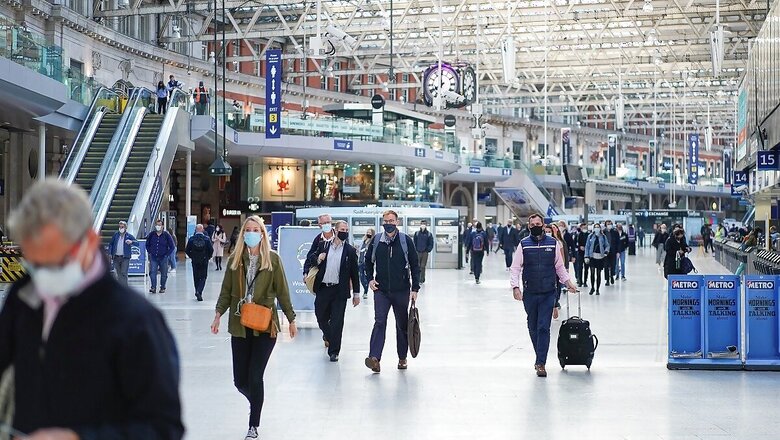
views
Experts and policymakers are baffled on why London has not witnessed the second flare-up of coronavirus infections while other parts of the United Kingdom are reeling under fresh cases and new lockdown restrictions?
In March this year, London was hit hard by the pandemic, where wards were converted to treat Covid-19 patients and temporary hospitals were set up in London’s Docklands amid fear of a collapsing health system.
“We are pretty much totally back to normal and we have virtually no Covid cases at the moment,” a doctor at a north London hospital told The Guardian on condition of anonymity.
Contemplating if there could be a second wave of the viral infections, scientists suggest that second waves of resistant infections occur after the capacity for treatment and isolation becomes exhausted. “The second wave isn’t a term that we would use at the current time, as the virus hasn’t gone away, it’s in our population, it has spread to 188 countries so far, and what we are seeing now is essentially localised spikes or a localised return of a large number of cases,” Linda Bauld, professor of public health at the University of Edinburgh said.
Although it is possible that the lesser number of fresh cases in London are due to more people being able to work from home or have been furloughed, limiting their exposure.
The Guardian reports that there is a theory on which Dr. Derek Groen, a lecturer in simulation and modeling at Brunel University London, believes may offer a partial explanation. “Because London was hit so hard, people have been more willing to comply with social distancing measures – people have been more cautious,” he suggests.
Meanwhile, open-source coronavirus simulations, carried out in seven London districts states that the second wave of Covid-19 is probable in almost all cases although they believe that the outbreak will be less severe than the first.
By late June, 17.5% of Londoners had caught the virus, while separate estimates suggest that only between 5% and 7% of the UK population overall has been infected and in some parts, it is as low as 3%, media reports.
Explaining why London has not witnessed another spurt, Rowland Kao, professor of veterinary epidemiology and data science at the University of Edinburgh, believes that seroprevalence – the proportion of a population that has been exposed to a particular pathogen – could be a significant factor.
Also, university students are yet to return to the capital, while tourists’ footfall has reduced massively. But the picture may be very different by Christmas, Kao added.

















Comments
0 comment